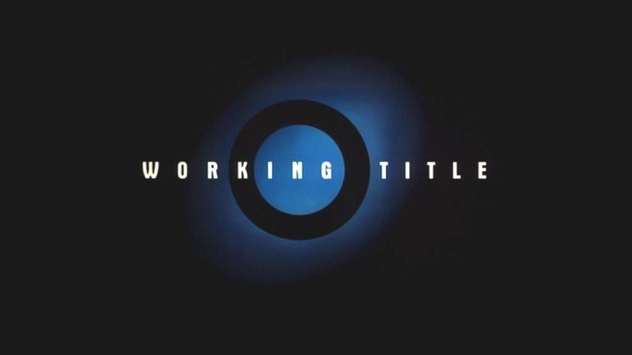 Weird Stuff
Weird Stuff  Weird Stuff
Weird Stuff  Mysteries
Mysteries 10 Tragic Disappearances and Deaths in Joshua Tree National Park
 History
History 10 Ways Childhood Really Sucked in the Old West
 Music
Music 10 Name Origins of Famous Bands from the 1990s
 Religion
Religion 10 Biggest Turnarounds by the Catholic Church
 Weird Stuff
Weird Stuff 10 Unbelievable Times Laws Had Unintended Consequences
 Humans
Humans Ten Historic Women Who Deserve Way More Credit Than They Got
 Movies and TV
Movies and TV 10 Films That Spawned Major Lawsuits
 History
History Ten Times Towns Were Wiped Off the Face of the Earth
 Creepy
Creepy 10 of the Most Disturbingly Haunted Public Houses in the UK
 Weird Stuff
Weird Stuff 10 Niche Subcultures That Are More Popular Than You Might Think
 Mysteries
Mysteries 10 Tragic Disappearances and Deaths in Joshua Tree National Park
 History
History 10 Ways Childhood Really Sucked in the Old West
Who's Behind Listverse?

Jamie Frater
Head Editor
Jamie founded Listverse due to an insatiable desire to share fascinating, obscure, and bizarre facts. He has been a guest speaker on numerous national radio and television stations and is a five time published author.
More About Us Music
Music 10 Name Origins of Famous Bands from the 1990s
 Religion
Religion 10 Biggest Turnarounds by the Catholic Church
 Weird Stuff
Weird Stuff 10 Unbelievable Times Laws Had Unintended Consequences
 Humans
Humans Ten Historic Women Who Deserve Way More Credit Than They Got
 Movies and TV
Movies and TV 10 Films That Spawned Major Lawsuits
 History
History Ten Times Towns Were Wiped Off the Face of the Earth
 Creepy
Creepy 10 of the Most Disturbingly Haunted Public Houses in the UK
10 Tips For Getting Paid To Write For Listverse
Do you like the idea of being paid to write? Well, you’ve come to right place. In case you hadn’t heard: Listverse is on the lookout for new talent. If you’ve got an idea and a knack for putting words together, we want to pay you US $100. No joke. Our submissions page is completely open, and anyone can enter. That means you.
Yeah: you. See, unlike most big sites, Listverse doesn’t require you to have a degree or previous experience or anything like that. When I submitted my first article, I’d never written ANYTHING before. All I had was a cool idea, which the editors liked enough to publish. That article led to more and more work, until eventually I was earning enough to become a full-time writer. How great is that? Since then, I’ve been swamped with emails from people wanting to know how to get on the Listverse bandwagon. So here’s the deal: I’ll tell what I’ve picked up writing 40-odd articles, if you promise to try writing one too. Interested? Then read on:

This is it: the golden rule of writing. Yet, for some reason, it tends to worry newbies. Lots of people read ‘write what you know’ and worry they don’t know anything—like maybe you need a degree in ‘Listology’ before we’ll let you tackle certain subjects.
Well trust me, you don’t. Not only that, but I guarantee you’ve got an idea in you right now. See, the great thing about list-writing is your topic can be as broad or as narrow as you want it to be. So let’s say the only thing you know about is Chinese culture. Great! Write a broad list like 10 Bizarre Aspects of Chinese Culture. Or let’s imagine you love space photography: you could try your hand at something ultra-specific like 10 Astounding Examples of Pareidolia in Outer Space.
Both of those examples got published because their authors followed this golden rule. Whatever you’re into, there’s a list in there. So come on: what do you ‘know’?

Once you’ve found your topic, find an unusual way of looking at it. The more unexpected your take is, the more likely it’ll be published. Just this month, we’ve had 10 Medicines That Made Things Worse. Something like that instantly gets attention because it turns our notions of medicine on their head. Or try something unusual, like 10 Bizarre Theories About the Earth that People Still Believe. And don’t be afraid to be controversial.
Yeah: we’re not shy about controversy. One article that caused a recent storm was 10 Reasons Creationism Should be Taught in Schools. An article like that not only challenges accepted wisdom, it invites the reader to form their own opinion. Which people did: that particular article racked up over 750 comments within days. So look for your angle—that little twist that will make your article on North Korea stick out from every other article on North Korea. With a good topic and a good angle, you’re halfway there.

All websites have editorial guidelines, and Listverse is no exception. Before you start physically writing, you need to have a look at them. You might be a kickass writer who gets rave reviews on another website, but mimicking their ‘house style’ on a Listverse piece will just make the editors wonder why you bothered sending it here.
As embarrassing as it is to admit, I’ve been guilty of this. My second-ever article was an absolute train-wreck and should be held up as an example of how not to write for Listverse. Where did I go wrong? Simple: I didn’t follow the guidelines and just wrote what I wanted. Big mistake: doing that is insulting to the editors and readers and makes you look pretty dumb. So take it from me: download and read the rulebook before you write a single word. It may be time consuming, but you’ll be glad you did it.

It’s widely acknowledged that the best English is simple English. George Orwell, Ernest Hemingway, Cormac McCarthy and Hunter S Thompson all wrote about big complex things using short, simple sentences. No excessive sub-clauses. No ‘ten dollar’ words. They wrote so any casual reader could understand them, and so should you. Keep it short, keep it punchy and don’t overload sections with information. There’s a simple reason for this: people are here to kill time. They’re sitting at work or the back of some classroom and want to be entertained for five minutes. That’s why lists like the 10 Greatest Benefits of Capitalism will break their complex topic down into short, easily-digestible concepts. It allows us readers to feel smart—like we’re learning something new—and keeps your writing from veering off into academic territory.

You may have noticed most lists on here are pretty informal. Writers drop in the odd-joke, use occasional slang and basically do their best to keep it sounding like a conversation. Why? Because that’s what it should feel like: a casual chat with an entertaining friend. A friend you might disagree with, sure—sometimes even a friend you kind of hate. But still a friend: someone on your level who you can imagine talking to in real life. Reading writing that goes the opposite route and becomes too formal is like listening to a lecture. It can be interesting, you learn a lot, but it’s not something you want to spend your spare time doing—especially if you’ve just got back from a long day at college. Listverse should be a place to unwind and learn some trivia; an informal(ish) tone will really help that.

I’m going to let you in on a little secret: your title is kind of a big deal. As the first thing readers see when they hit the homepage, it can make the difference between them reading your article or thinking ‘can’t be bothered’.
So what makes a great title? Simple: it’s something that shocks the reader, grabs their attention and explains the entire concept in around 5 words. Need an example? One of my favorites is 10 Things the Nazi’s got Right. How could anyone resist a title like that? It sums up everything that’s great about Listverse: the promise of obscure information, controversial opinion and a weird take on a well-known concept. Fit a title like that to your piece and you’ll be ahead of the game.

So you’ve found a topic you know, a great angle, written it up in an entertaining way and given it an awesome title. You press send, sit back… and get a polite rejection email a few days later. What happened?
Well, it could be anything. Maybe your angle wasn’t as interesting as you thought it was. Maybe a near-identical article was published three months ago. Maybe it just wasn’t right. Whatever the reason, don’t take it personally. No, really, don’t. It’s easy to get upset when you spend hours working on something only for someone you’ve never met to say ‘nah’. Trust me, I know. When I first started writing for Listverse I had about one rejected article for every one published. But here’s the thing: it’s not personal. Honestly, it isn’t. Just because your first submission got declined doesn’t mean your second, third or fourth will. The thing is: we want you to succeed. If we publish your article it means we get an awesome piece of content to stick on our front page. So we don’t turn down stuff just for the hell of it. If you get rejected, figure out where you went wrong and try again. Then keep trying till you get it right.

The comments section is the curse of the internet writer. If it’s too complimentary, you run the risk of believing your own hype. If it’s too negative, your confidence can take a heck of a beating. But it’s the name of the game: if you’re getting paid to write, you have to take all the stuff that comes with it—and every writer has their own method of dealing with comments.
Personally, I never read them. Ever. I just figured it was easier that way: but that doesn’t mean you don’t have to. Some writers enjoy getting below the line and having an argument. Others just skim-read them as a way of figuring out what they’re doing right and wrong. But just remember this: even if all the comments on your article are violently negative, that can only be a good thing. Whenever I cause a reaction in someone—good or bad—I know I’m on the right track. After all, what’s worse: scrolling down to find 600 comments all calling you a jackass; or finding no comments at all?

A final piece of advice: consider leaving a contact email so people can get hold of you. Not everyone does this, but I’d strongly recommend it. Put simply: it’s one of the best things about the job. Every day I log on to a slew of emails from Listverse readers—some good, some bad, but all interesting. And here’s the thing: they’ll say things you’d never see below the line. Over five months I’ve had people write to me about their struggles with depression; their own writing careers; odd opinions about topical events and little stories from their own lives. And I love it—even if I don’t always reply, just logging on to find them there puts me in a great mood.
But best of all are the ones from people your work has somehow affected. I recently wrote an article that touched on the horrific siege at Sarajevo. A few days later I got an email from someone who had been there and survived the massacre telling me I’d done an amazing job. Getting something like that in your inbox reminds you why you’re doing this in the first place. It reminds you why you want to write. So yeah, maybe consider leaving that email address. Just in case.

So that’s it: 40 articles’ experience squashed into one quick list. Now it’s your turn. If you’ve ever wanted to be a writer, I want you to follow this link and give it a shot. Just try it, because I promise you will never, ever regret it. Aside from the $100 every article gets, and the knowledge that over 8 million people are reading something you’ve written; you may just find that it’s one of the most-rewarding things you’ve ever done. So what are you waiting for? Get writing!








